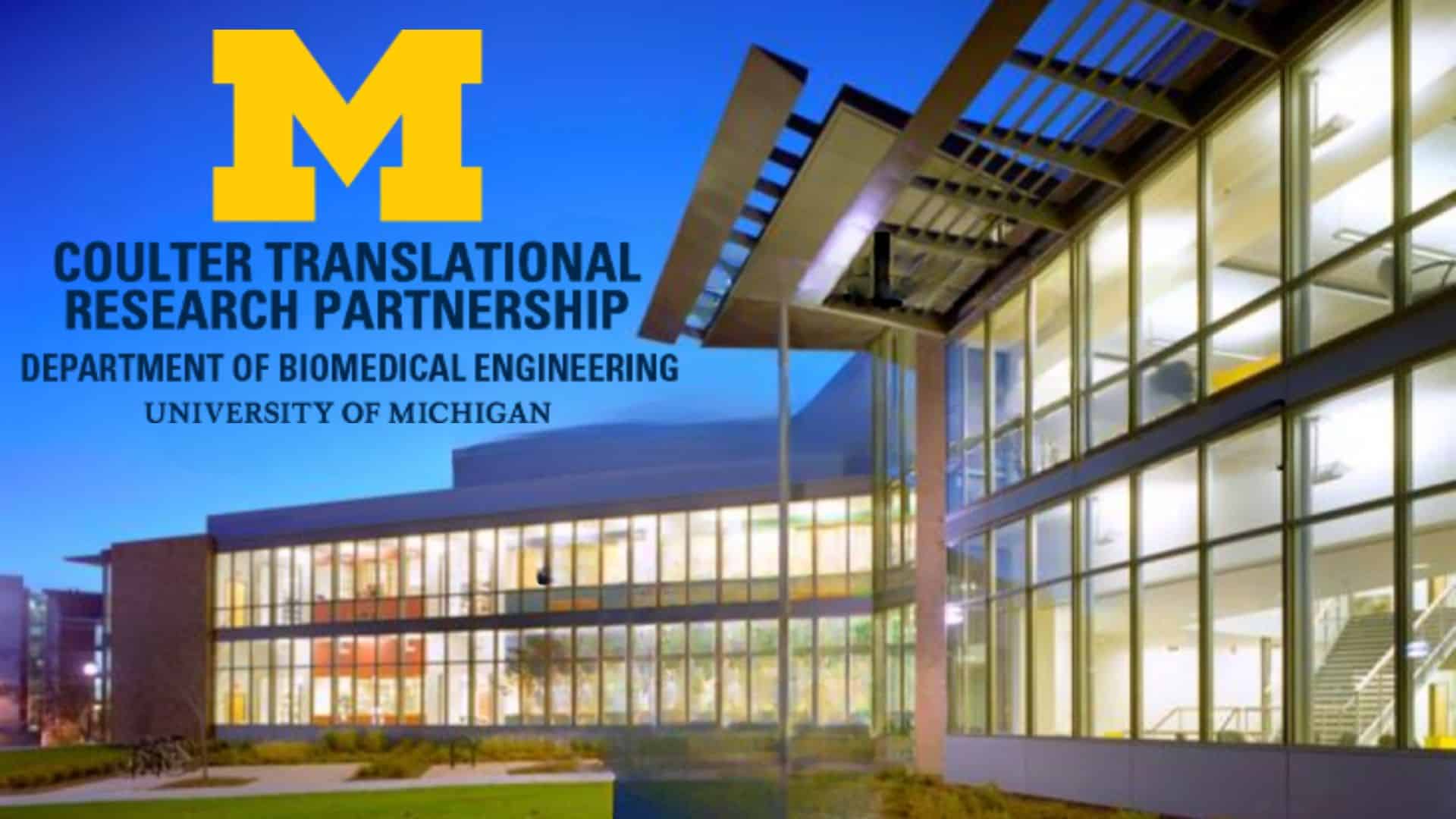
U-M BME’s Coulter Translational Research Partnership Program Catalyzes $544M in Follow-on Professional Funding
During that time, the program has resulted in nine product launches, six FDA approvals, and 22 startups formed.

During that time, the program has resulted in nine product launches, six FDA approvals, and 22 startups formed.
U-M-BME’s Coulter Translational Research Partnership Program, which was established with a $20M endowment, has catalyzed more than $544M in follow-on professional funding from 2006 through 2023.
During that time, the program–which supports research directed at promising technologies within research laboratories that are progressing towards commercial development and clinical practice–has resulted in nine product launches, six FDA approvals, and 22 startups formed.
“Over the years, the BME Department’s Coulter program has provided $9.5M in awards to early stage research projects that subsequently attracted 57 times that amount in professional funding, which underscores the value and impact of this program on clinical translation,” said Mary-Ann Mycek, William and Valerie Hall Department Chair and Professor, Biomedical Engineering. “By bringing together faculty PIs from engineering and medicine for every project, providing guidance and support from the Coulter program, and leveraging the considerable resources of the University of Michigan, our teams develop innovative products that positively impact patient care.”
“The variety of projects that went from concept to clinic are a testimony to the importance of working with the Coulter Translational Research Partnership Program as a funding partner,” said Managing Director Tom Marten. “These projects yield quantifiable progress in medical development, and have provided direct benefits to patients, clinicians and the research community as a whole.”
One example among Coulter’s many successes is HistoSonics, which just celebrated the one-year anniversary of its marketing authorization through the FDA De Novo process for the Edison® System, issued in October 2023. The product is a non-invasive, sonic beam therapy platform that uses histotripsy, which is capable of destroying targeted liver tumors at a sub-cellular level. Histotripsy was invented by researchers in Biomedical Engineering at the University of Michigan in the early 2000’s, and was one of the first projects funded by BME’s newly established Coulter Program. Today, Coulter support for promising biomedical technologies continues with $1.2M awarded in 2024 to 10 project teams.
Successful clinical products highlight the value of continued collaboration and support for medical technology development that leads to new startup companies or licensing deals to existing companies to commercialize the technology. “Coulter is a critical piece of the innovation ecosystem here at U-M,” said Jonathan Fay, Associate Professor of Engineering Practice, Biomedical Engineering. “Early stage money to go from a concept to a prototype that can demonstrate value in the clinic is the hardest money to get. The success of these projects highlights how BME’s Coulter Program, U-M’s Innovation Partnerships, and programs like NSF I-Corps in engineering, and Fast Forward Medical Innovation in medicine work together to shape and support new innovations based on the amazing research here at the University of Michigan.”